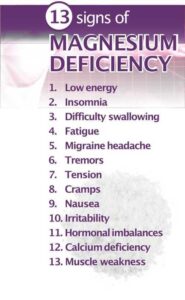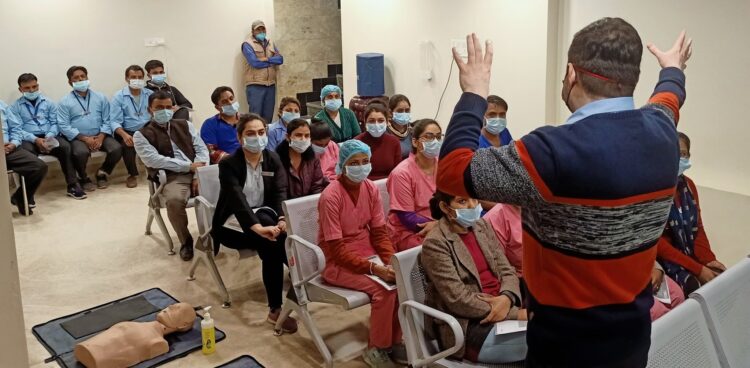OFFER- Diabetes Test at Rs-20 Only/-

Monga Hospital is offering Diabetes test ( Lab Testing ) at Rs- 20 only on every sunday. Both pp and fasting will be included in it. Please come and grab this offer.
PCOS: What magnesium deficiency does to a woman’s body

Magnesium is an important micronutrient in the body that helps with a variety of functions. It is perhaps an crucial element that leads to severe illnesses if left untreated. It helps regulate muscle and nerve function, keeps bones strong, and helps maintain a steady heartbeat.
But these functions are just the tip of the iceberg when it comes to the importance of magnesium in the body.
Magnesium deficiency in women can lead to a variety of health issues, including fatigue, muscle cramps, and mood changes. Magnesium also plays an important role in bone health, and a deficiency can increase the risk of osteoporosis. Identifying magnesium deficiency involves looking for signs such as loss of appetite, nausea, muscle twitches, and abnormal heart rhythms.
In women, magnesium supports hormonal balance, bone health and heart function.
However, in today’s fast-paced lifestyle, where instant food is a regular part of daily diets, micronutrient deficiencies, including a lack of magnesium, are increasingly common.
Foods rich in magnesium include leafy green vegetables like spinach and chard, nuts and seeds such as almonds and pumpkin seeds, legumes like black beans and edamame, whole grains such as quinoa, and fruits like avocados and bananas. Even dark chocolate is a rich source of magnesium. Ensuring an adequate intake of these foods can help maintain healthy magnesium levels and prevent deficiency-related health issues.
However, if symptoms persist, it is advisable to consult a healthcare professional who can recommend magnesium supplements, if your diet isn’t providing enough.
Vitamin D supplements may help improve blood pressure, cholesterol, and insulin
:max_bytes(150000):strip_icc()/USED_Vitamin-D-for-Skin-4625-1x1-hires-680121d2f6814664b266fb2b94501fae.jpg)
- According to a new meta-study, an average supplemental dose of 3,320 IU of vitamin D per day is associated with reduced blood pressure, total cholesterol, hemoglobin A1C, and fasting blood insulin and glucose.
- The finding comes from a new meta-study of 99 randomized, controlled trials from around the world investigating the benefits of vitamin D for cardiometabolic health.
- The meta-study attempts to explain and distill findings of sometimes inconsistent studies regarding vitamin D.
-
A new, comprehensive review of existing, often conflicting, research on the benefits of vitamin D supplementation extracts a fresh view of its value in maintaining cardiometabolic health.
The authors of the meta-study found that taking a median dose of 3,320 International Units (IU) of vitamin D per day, or around 83 micrograms, was associated with several significant cardiometabolic benefits.
These benefits included reductions in systolic and diastolic blood pressure, overall cholesterol, haemoglobin A1C—a marker of type 2 diabetes—and fasting blood glucose and insulin.
The researchers from China and the United States examined the details of 99 randomized, controlled trials (RCTs) published until March 26, 2024. The trials involved 17,656 participants and were conducted among widely varying populations in various global locations.
























